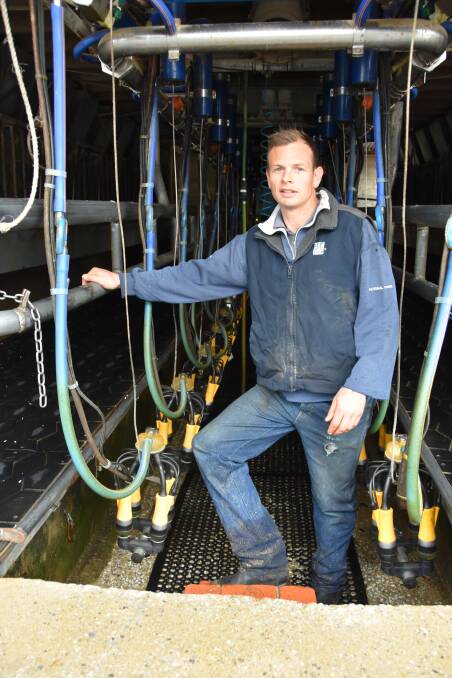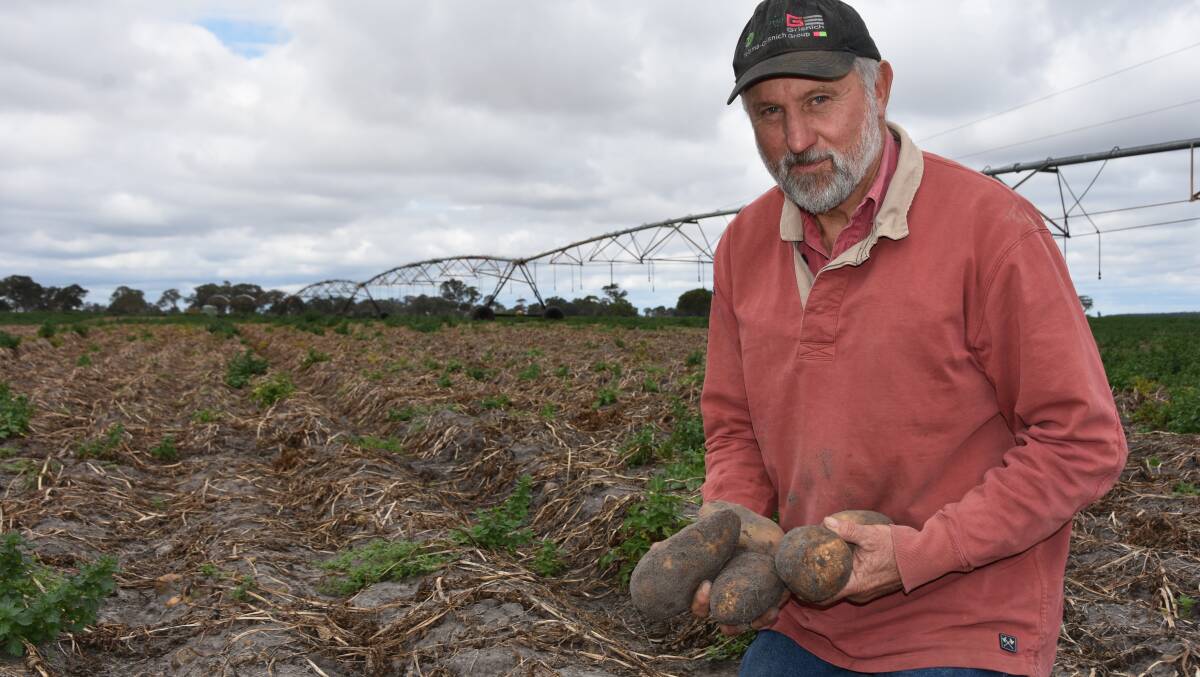
CLOSED borders have brought to the fore a long-term issue of labour shortages in the agriculture sector.
Andrew Curtis, chief executive officer of both Livestock SA and SA Dairyfarmers' Association, said the recent pandemic and borders closures had accentuated an already existing problem finding adequate staff in SA's agriculture.
"What was a chronic problem has become acute," he said.
"We've been fortunate in the past decades that a lot of backpackers sought to participate in farm labour. But backpackers don't exist anymore and they're not likely to for another year or two.
"The buffers have allowed us to stumble on and get the job done without particularly addressing the key issue."
Data from the Regional Australia Institute showed there were record job vacancies advertised in regional Australia in March, including in regional SA, where jobs were up 72.5pc on the same time the previous year.
While professional jobs, particularly those in medical fields, were highest in demand, the "farm, forestry and garden" also had high numbers of availability, particularly on the Fleurieu Peninsula and Murray Mallee region, which also includes the South East.
Mr Curtis said this shortage has had a significant impact on a number of sectors, including livestock, cropping, processing and even transport, across a wide geographical region.
We're saying, open the borders as soon as possible, particularly as vaccination programs are completed, so we access the labour that is required.
- PATRICK HUTCHINSON
He said pastoral areas were particularly dependent on backpacker and gap year labour and while drought had meant some businesses had destocked, as some areas had rain and began to look at restocking, they would also need more staff.
Intensive animal businesses, such as dairy, were also feeling the pinch from reduced labour availability.
"Dairy is a 24/7 operation and it needs people, but it also needs people with an affinity with large animals," he said.
He said there had been hope that the end to JobSeeker and JobKeeper programs in March would have more people looking for work "but they're not".
Mr Curtis said there was work being done to try and solve the problem long-term.
Out of the SA Dairy Action Plan, the industry had established a Workforce Committee to address the labour and skill shortage throughout the chain, with a goal to work alongside training providers and put pathways in place.
The Primary Producers SA policy council had also met to look at potential training and ideas, such as how to train for agriculture when it does not fit into a traditional apprenticeship.
"The long-term critical needs are in people with some skills," he said.
But he said short-term solutions were tricky.
While Pacific Island programs worked for horticulture, they were not necessarily a good option as many of the workers did not have experience with sheep or dairy
"Having New Zealand open up is good for shearers," he said. "But one size doesn't necessarily fit all."
Robotics considered to lessen burden
Mount Compass dairyfarmer Nick Brokenshire said there was a lot of reasons why dairy had problems attracting staff, but he still believes there is potential for a great job in the industry.
"It is definitely hard to get people to get up early in the morning to milk cows," he said.
"When you're working with animals, it's very important to find people who like working with animals."
But he says most dairyfarmers worked hard to make sure the farm is an "enjoyable place to work" for their staff, including paying above the award wages.
With staff so difficult to find, he said there was increasing interest in robotic dairies, even on the Fleurieu Peninsula, because of the "headache" in finding staff.
"We're generally looking at ways to be more efficient to reduce labour needs," Mr Brokenshire said.
Robotics were a big investment for a business and were not necessarily a fast pay-off, he said, do there was a handbrake in the adoption of them.
But he said the alternative was more pressure and even longer hours on farming families, which came with its own mental health stresses.
Graingrowers feeling pinch
Grain Producers SA CEO Caroline Rhodes said there had been reports from members indicating they were struggling to find skilled or semi-skilled labour, particularly during peak periods, such as spraying or seeding.
"The problem is more pronounced in areas with a lower population base, such as the northern and western Eyre Peninsula, but even finding skilled labour in areas closer to a larger population base is proving to be difficult," she said.
"Grain growing businesses are no different to other ag sectors in that employers want longevity in their employees. Significant time, money and resources are invested in training labour and it can take years to see a return on that investment."
The buffers have allowed us to stumble on and get the job done without particularly addressing the key issue.
- ANDREW CURTIS
Ms Rhodes said building capacity was among the six pillars in the South Australian Grain Industry Blueprint, with it a priority to provide adequate and accessible vocational education and training to meet future workforce planning and needs.
"GPSA will be advocating to government to implement projects and funding in line with the targets under this priority area to help address the labour and skills shortage," she said.
Pork producers under pressure
Riverland pork producer and Australian Pork Limited board member Mark McLean said he had experienced a lot of pressure in the past year with constant job vacancies.
Also a horticulture producer, he is among those with a labour agreement to bring in skilled workers from overseas when unable to meet requirements locally, but he said this had slowed down considerably.
"What might have taken three to six months has blown out to a lot longer," he said.
"Pig farms need people 365 days a year for animal husbandry."
He said most people he spoke to had a "percentage of vacancies".
"In the past we might have advertised and got 10 to 20 applications but we might only see two or three now and some possible aren't even genuinely seeking work," he said
Mr McLean said APL had been speaking with government representatives about the issue that is affecting many sectors.
He said while it impacted the day to day running of the operation, it was also holding back businesses on being able to grow and seize opportunities that presented themselves.
Processors plea for workers
In the processing industry, there is an estimated 4000 worker shortfall, with the industry warning it could hold back the the national herd rebuild.
Australian Meat Industry Council chief executive officer Patrick Hutchinson said the processing sector would not be able to cope with increased numbers of cattle and sheep, unless those workers were found.
"We're saying, open the borders as soon as possible, particularly as vaccination programs are completed, so we access the labour that is required," he said.
"As it is, we have processors reducing kill shifts on a permanent basis and having unsustainable, larger over-time schedules.
"It will be very difficult for processors to cope with any increase in livestock numbers with the current staffing issues we face."
Thomas Foods International people and culture general manager Morna Young said recruitment was an industry-wide challenge.
"We're on the lookout for entry and skilled food processing positions as well as butchers, maintenance technicians, sales and administration staff.
"We're keen to hear from anyone interested in a career in what is one of Australia's major growth industries."

Opportunity to reassess
Mingbool potato grower Terry Buckley said the past harvest was very difficult with a much-reduced staff.
"We didn't get backpackers and the way they're talking, we likely won't again next year," he said.
He did benefit from a migrant population of Burmese people who were able to fill some of the gap.
But he said the shortfall meant more skilled workers, who would normally be fixing machinery or working on centre pivots, were required to work the lower skilled grading jobs, which slowed down the entire operation of the business.
He believes there have been some flaws in the system of getting workers into employment.
"It is an opportune time to have a serious look, since we still do have quite a number of unemployed people, especially in regions," he said.
He said there was also flaws in overseas worker programs, which were predicated on "skilled workers".
"We've had some backpackers that Australia would be a better place if they stayed here but they don't tick a box," he said.
"They're someone you'd be very happy to train up and keep."
- with MARK PHELPS
Start the day with all the big news in agriculture. Sign up here to receive our daily Stock Journal newsletter.


